Negotiation and Conflict Resolution Report: Cuban Missile Crisis
VerifiedAdded on 2023/05/29
|5
|697
|404
Report
AI Summary
This report examines negotiation and conflict resolution strategies, using the Cuban Missile Crisis as a case study. It defines BATNA (Best Alternative to a Negotiated Agreement) and analyzes the potential outcomes for both the USA and USSR. The report explores the negotiation process, highlighting the challenges of achieving mutually beneficial outcomes and the potential for one party to exercise its BATNA. It further discusses issues negotiated during the crisis, referencing the movie "Thirteen Days," and outlines the positions, interests, and priorities of the USA and USSR regarding missile removal, non-invasion of Cuba, and the removal of Jupiter missiles from Turkey. The report emphasizes the complex interplay of interests and priorities in international negotiations.
1 out of 5
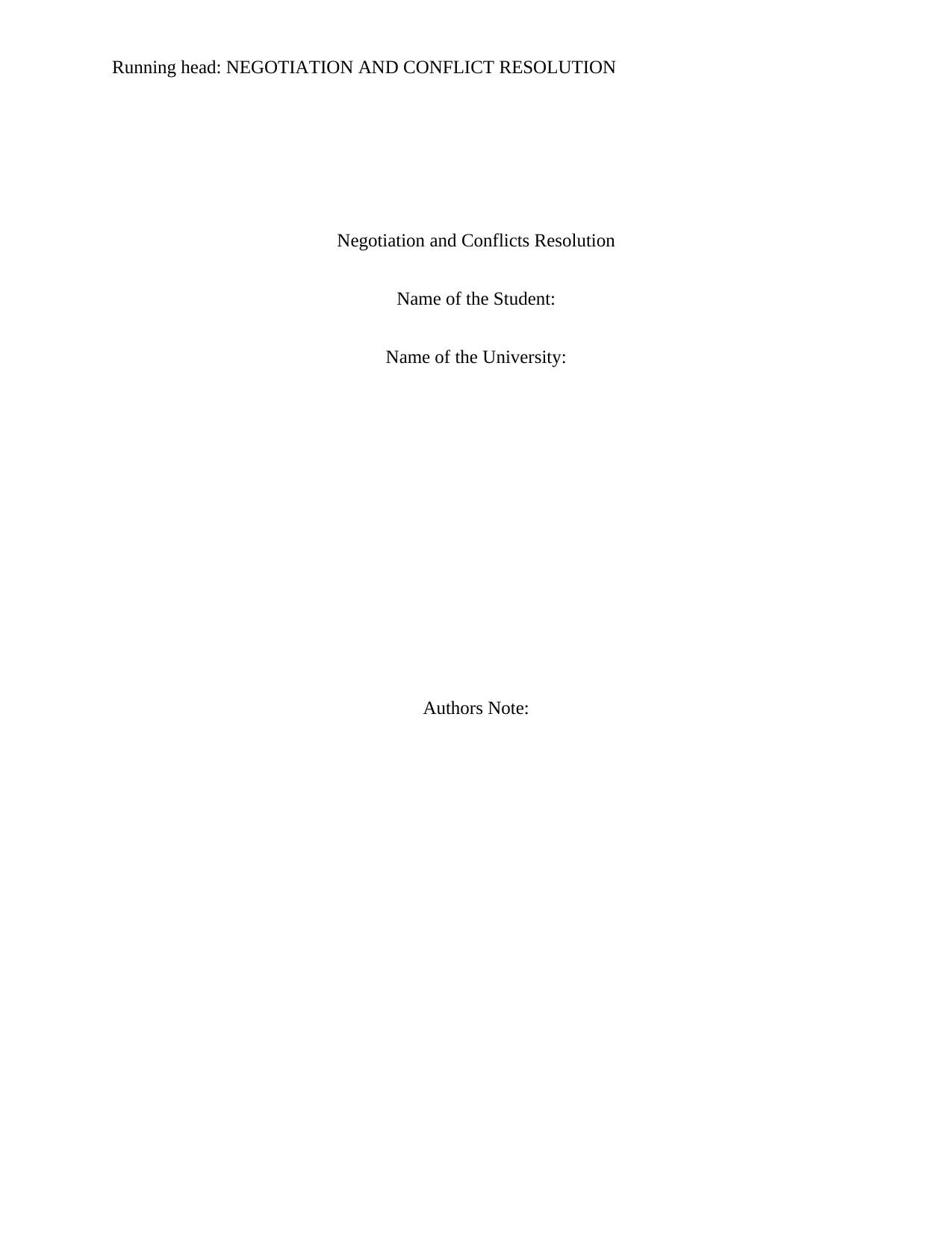
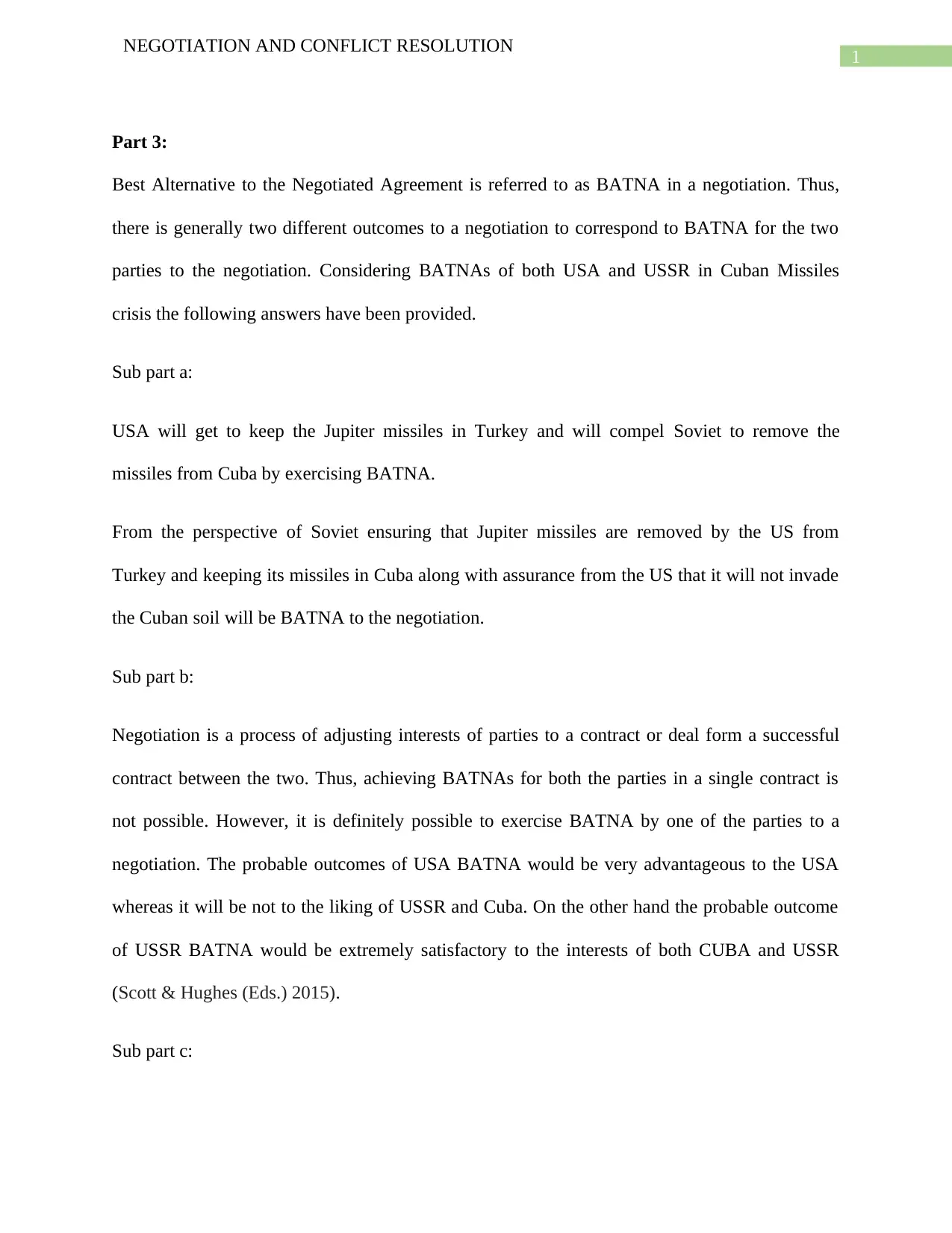
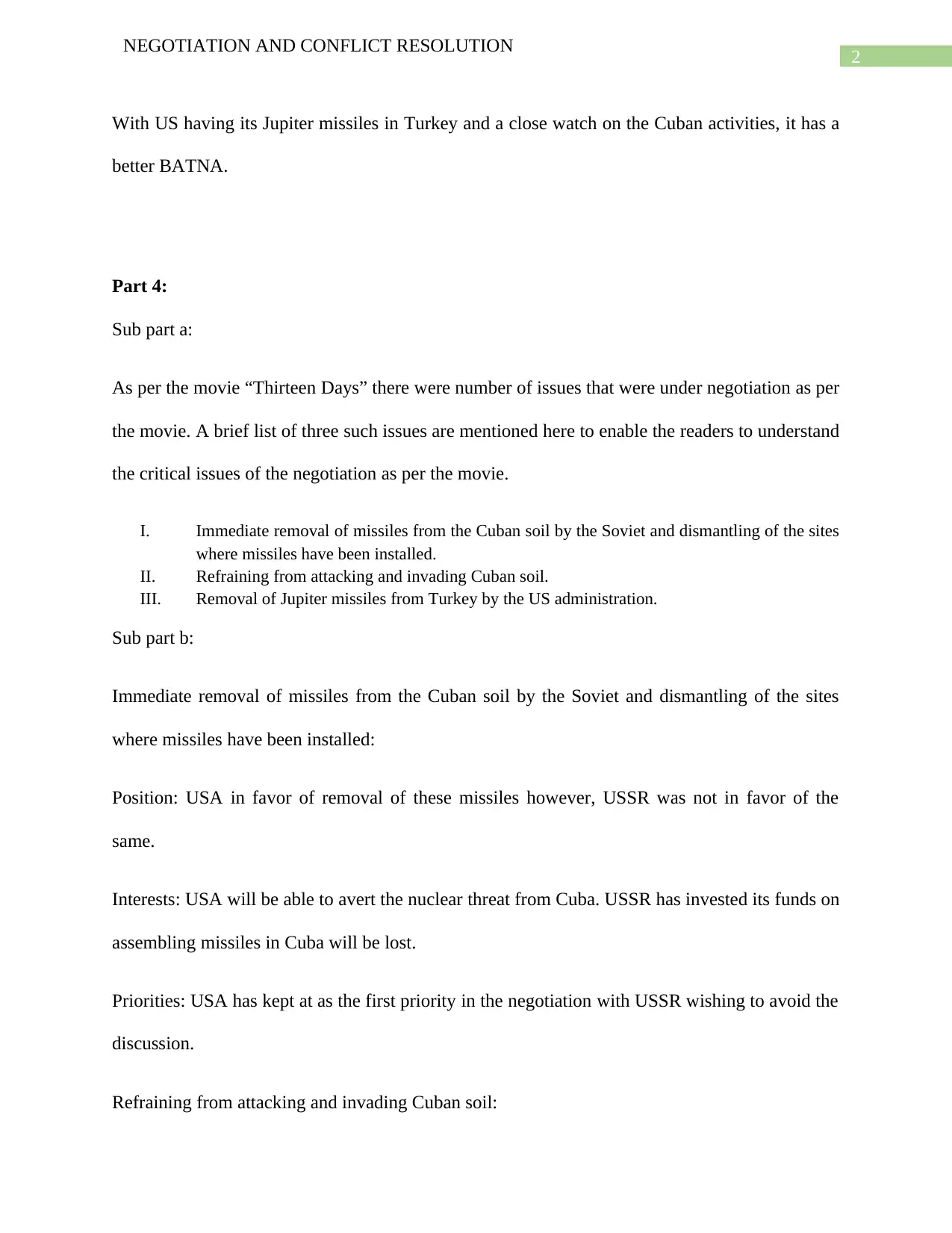

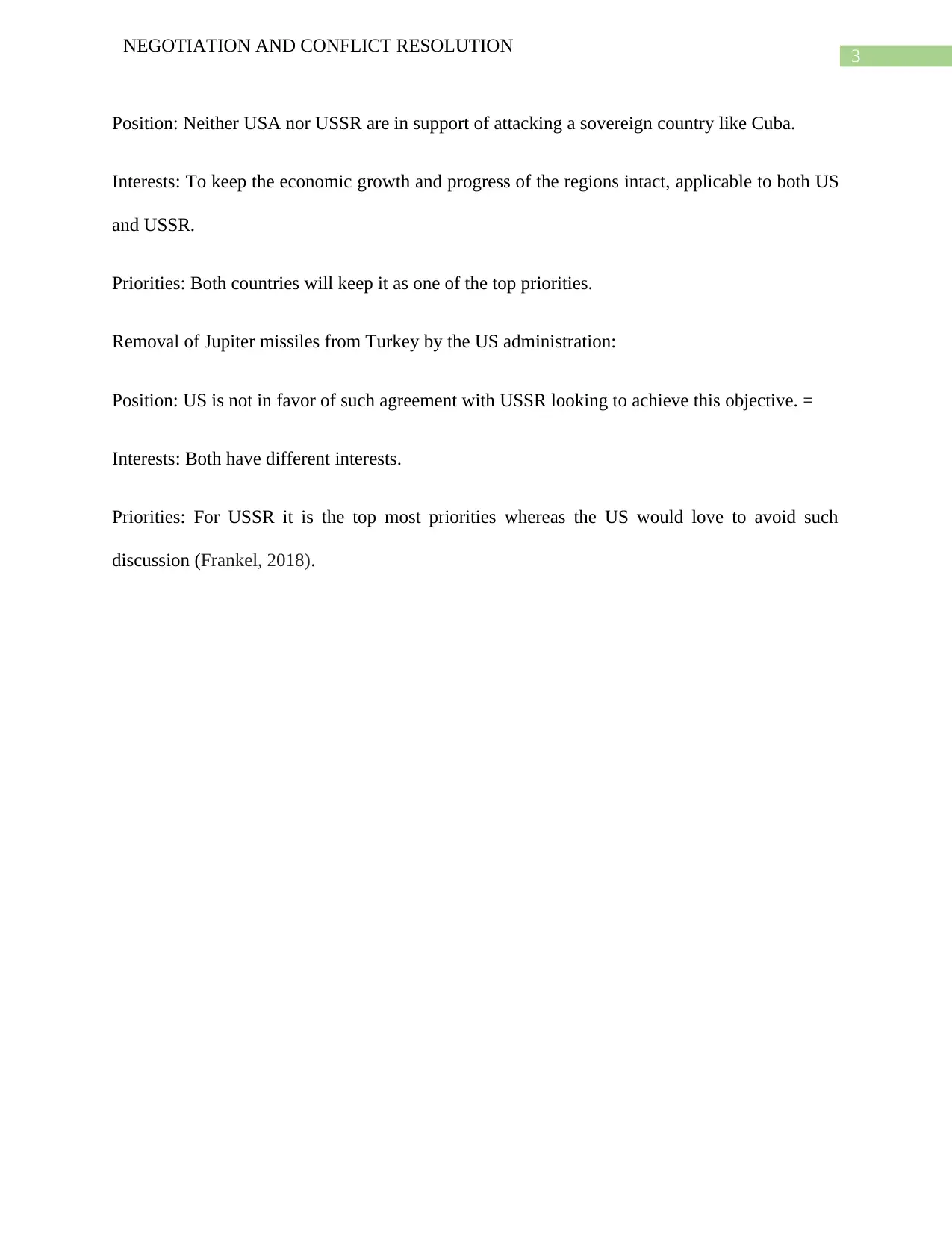
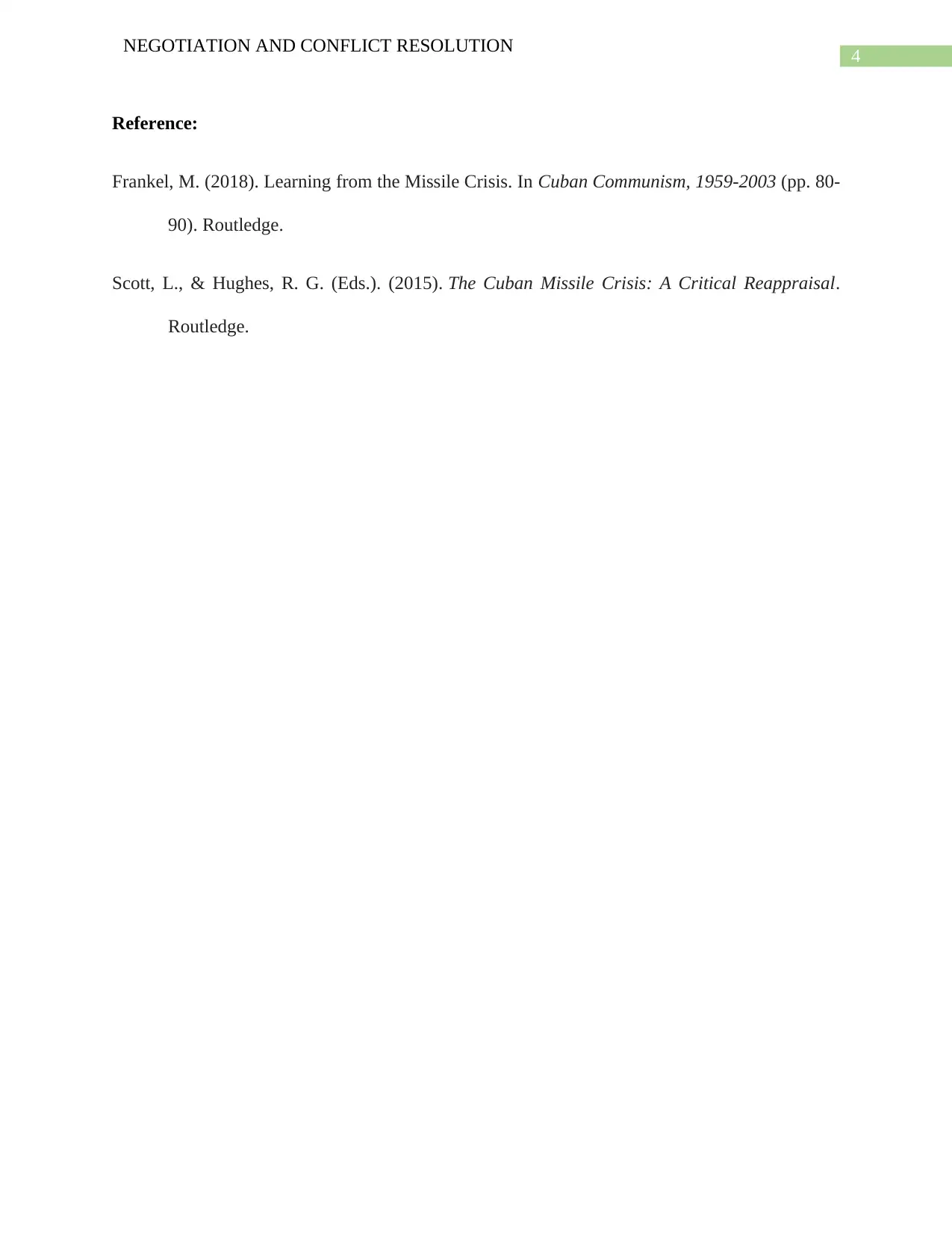

![[object Object]](/_next/static/media/star-bottom.7253800d.svg)